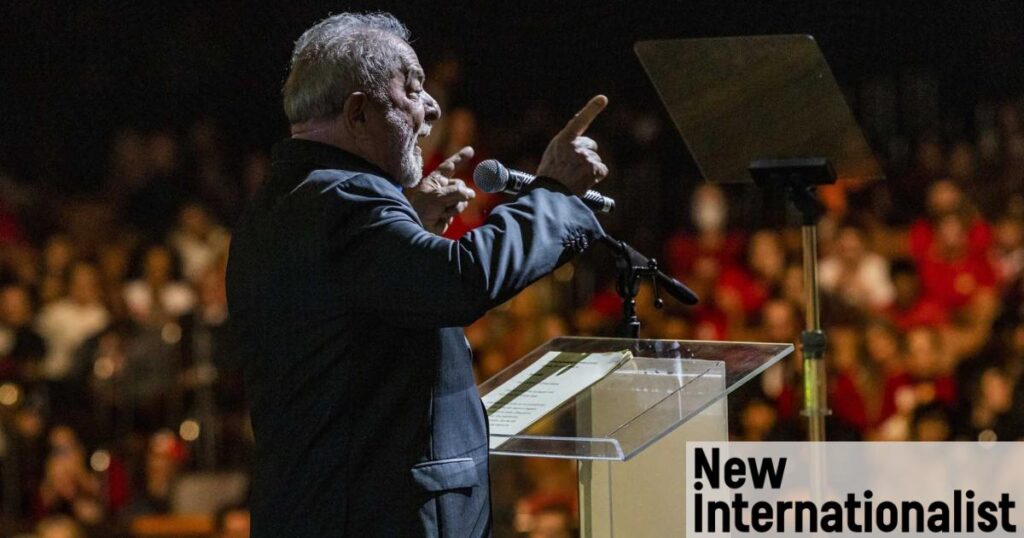Lula is trying to make Brazil's tax system more progressive but says he faces an uphill battle. Leonardo Sakamoto.
President Lula's government is seeking to simplify Brazil's outdated tax system and make it more progressive, but will this attempt to change the country's highly unequal tax code succeed where previous attempts over the past 30 years have failed?
Brazil's extreme inequality, which would be a shame in any civilized country, seems to be a source of pride for many politicians here: For those at the top, or those who dream of reaching the top, the key is not to reduce inequality but rather to glamorize it, so that individuals stop seeking collective social justice and focus only on their own status.
Nonsensical arguments for lower taxes on the super-rich have been circulating on social media (often by groups supporting former President Jair Bolsonaro), arguing that the wealthy create jobs, work harder, and are God's chosen ones and therefore should not be taxed.
In response, the first reform law to simplify the consumption tax was approved by the Chamber of Deputies in July and is currently being considered by the Federal Senate. The law would abolish five federal, state and municipal taxes and instead create a value-added tax (VAT) levied on the sale of goods and services.
The reforms have broad support, especially in manufacturing, and are expected to be approved later this year, but the second part of Lula's plan, aimed at reducing social inequality through a fairer tax system, is likely to be more difficult to pass.
In Brazil, the incomes of the super-rich are taxed at a proportionally lower rate than those of the poor and middle class. Corporate dividends are exempt from tax, and the wealthy also have access to “dedicated funds”, so-called “super-rich” funds, which act as tax havens within the country. In addition to reinstating the dividend tax and tightening regulation of these funds, there are other proposals, such as adjusting income tax rates to exempt most of the middle class, who currently pay 27.5%, and to impose rates of 30% and 40% on high-income earners.
Another change concerns inheritance tax, which currently has a maximum rate of 8% and is not applicable in some Brazilian states (by comparison, inheritance tax rates can reach 55% in Japan, 50% in Germany, and 40% in the United States and the United Kingdom).
Meanwhile, income inequality is also growing: According to Oxfam, the average wage paid to Brazilian workers fell by 6.9% in 2022, while corporate shareholders earned 23.8% more than the previous year. The NGO revealed that Brazilian shareholders received $34 billion, roughly the same as the real wage cuts faced by the country's workers.
A fairer tax code could help reverse this trend: Taxing the ultra-wealthy could raise about $58 billion a year, according to groups representing tax workers.
The big problem here is that a significant number of Representatives and Senators (who are themselves extremely wealthy) represent the interests of the super-rich in Congress. How do we get them to vote against themselves and the interests that elected them and keep them in power? This is a multi-billion dollar question.

